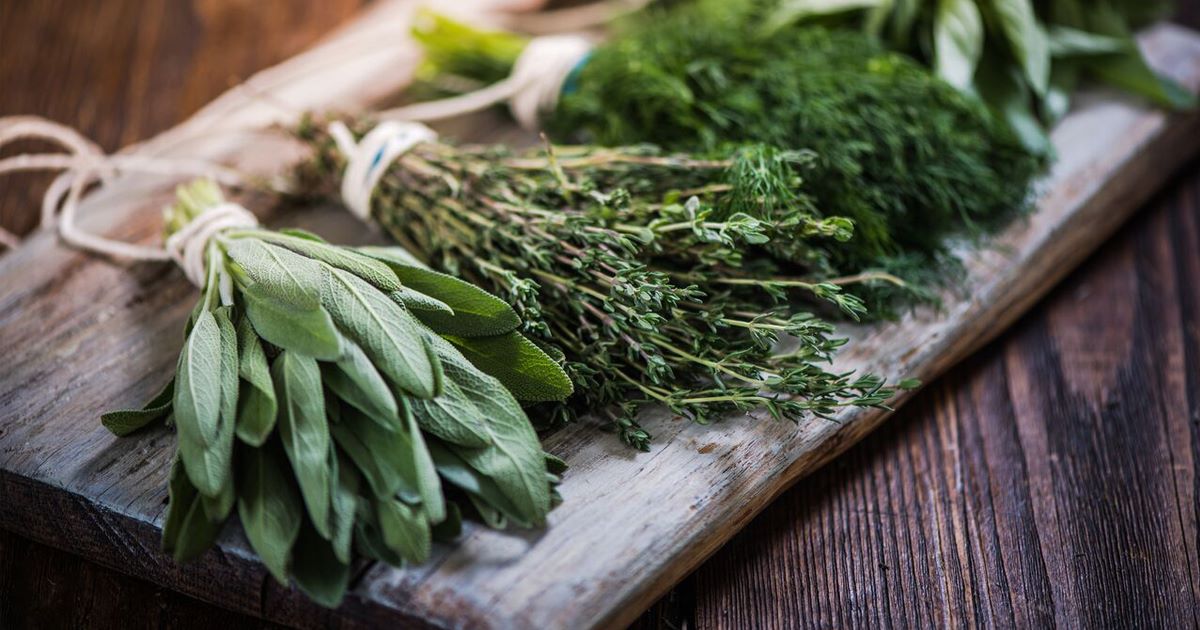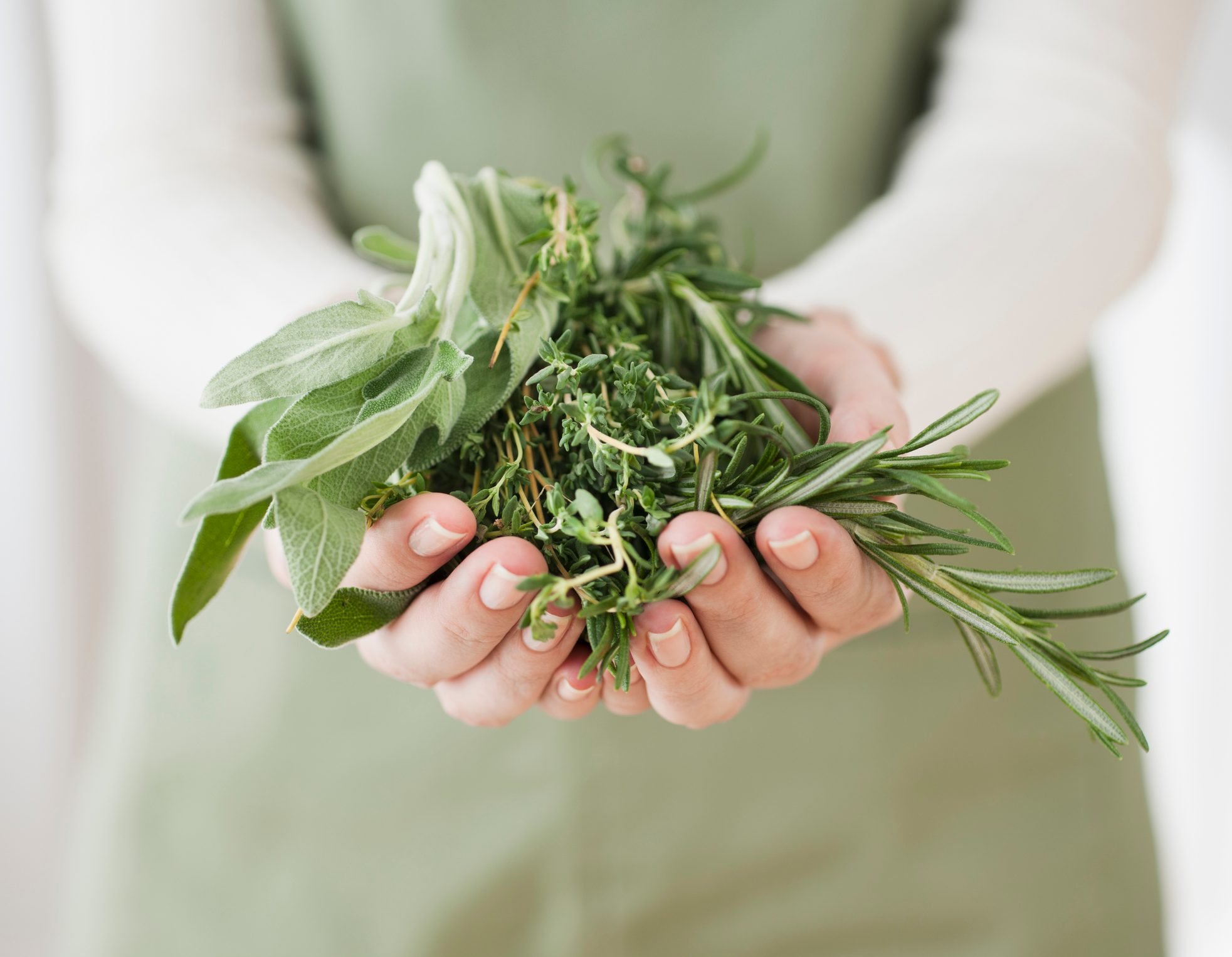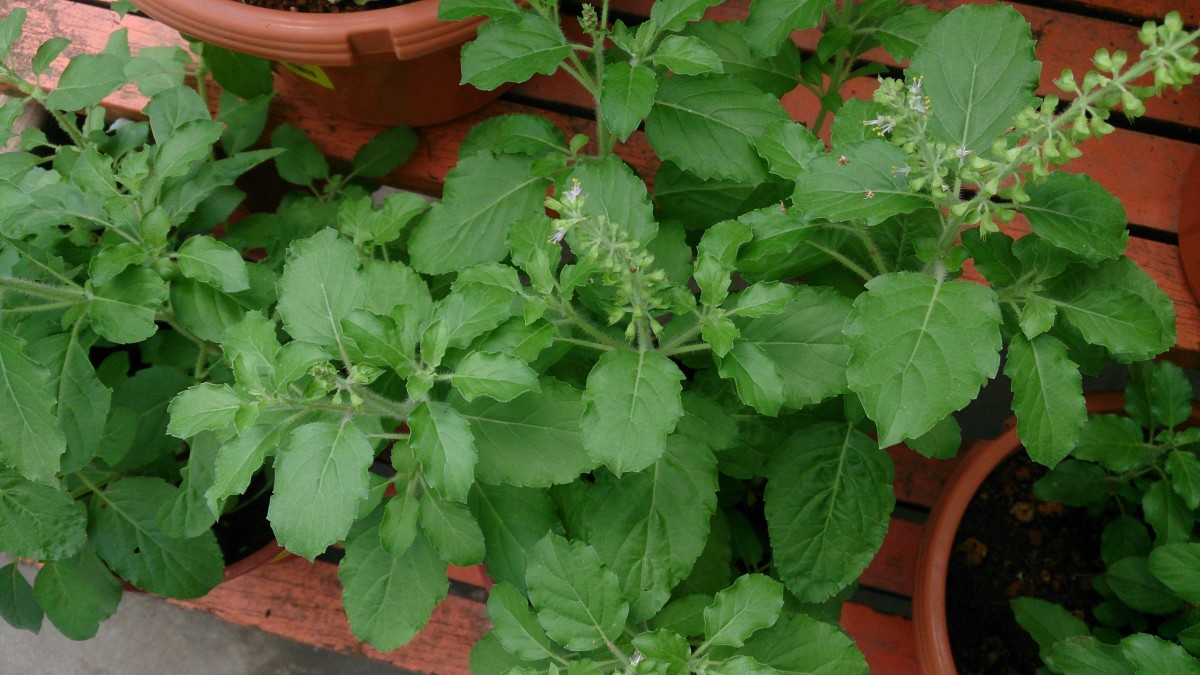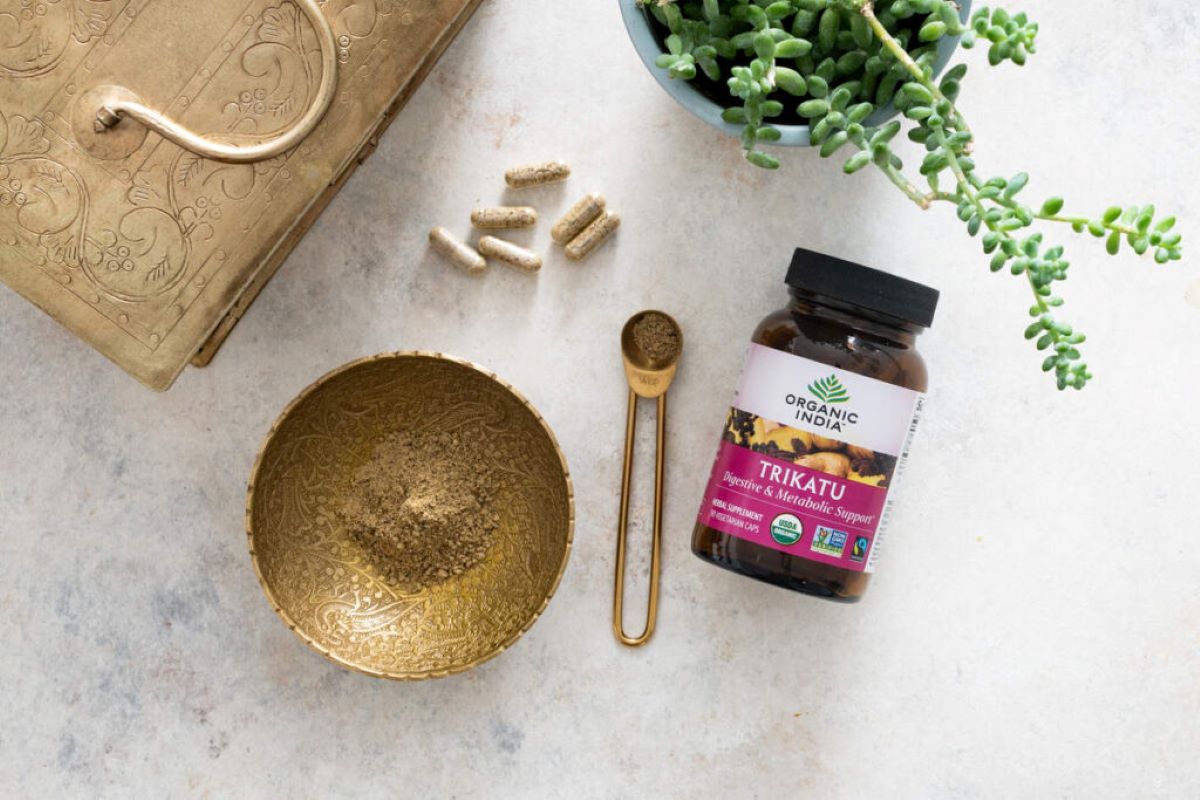Home>Gardening News and Trends>Gardening Trends>What Herbs Are Good For Skin


Gardening Trends
What Herbs Are Good For Skin
Published: September 29, 2023
Discover the latest gardening trends and learn about the best herbs that are good for your skin. Enhance your skincare routine naturally with these herbal remedies.
(Many of the links in this article redirect to a specific reviewed product. Your purchase of these products through affiliate links helps to generate commission for Chicagolandgardening.com, at no extra cost. Learn more)
Table of Contents
Introduction
Welcome to the wonderful world of gardening and skincare! The beauty industry is constantly evolving, with new products and trends emerging every year. However, when it comes to taking care of our skin, sometimes the best solutions can be found right in our own gardens. Herbs have been used for centuries for their medicinal and therapeutic properties. Not only do they add flavor to our meals, but many herbs also offer amazing benefits for our skin.
Using herbs in skincare is not only a natural and sustainable option, but it can also be cost-effective. Many store-bought products contain harsh chemicals and synthetic ingredients that can irritate the skin. By incorporating herbs into your skincare routine, you can harness the power of nature to nourish and rejuvenate your skin.
In this article, we will explore some of the most popular herbs that are good for the skin and how you can use them to enhance your beauty regimen. Whether you have dry skin, acne-prone skin, or simply want to maintain a healthy glow, these herbs have got you covered!
So put on your gardening gloves and let’s dive into the world of herbs for skincare!
Aloe Vera
Aloe vera is often referred to as the “plant of immortality” due to its extensive healing properties. This succulent plant has been used for centuries to soothe and heal various skin conditions. The gel-like substance found inside the leaves of the aloe vera plant contains vitamins, minerals, and antioxidants that work wonders for the skin.
One of the key benefits of aloe vera is its ability to moisturize the skin without leaving it feeling greasy or clogging the pores. It penetrates deep into the skin, providing hydration and promoting a healthy, radiant complexion. Aloe vera also has anti-inflammatory properties, making it ideal for soothing sunburns, rashes, and other skin irritations.
In addition to its moisturizing and soothing properties, aloe vera can also help reduce acne and blemishes. Its antimicrobial properties help to kill the bacteria that cause acne, while its anti-inflammatory properties reduce redness and inflammation. Regular use of aloe vera can improve the overall texture and tone of the skin, leaving it clearer and more even.
To incorporate aloe vera into your skincare routine, you can either use the gel directly from the plant or choose skincare products that contain aloe vera as an active ingredient. To soothe sunburns or skin irritations, simply apply a thin layer of aloe vera gel to the affected area and leave it on for a few hours or overnight.
If you have acne-prone skin, you can make a DIY aloe vera face mask by mixing aloe vera gel with a few drops of tea tree oil. Apply the mixture to your face, leave it on for 15-20 minutes, and then rinse it off with lukewarm water. This mask will help reduce inflammation, kill acne-causing bacteria, and promote a clearer complexion.
Remember, when using aloe vera, always choose organic and pure forms of the gel to ensure you are getting the maximum benefits for your skin.
Chamomile
Chamomile is a popular herb known for its calming properties, but did you know it can also do wonders for your skin? This gentle herb is packed with antioxidants and anti-inflammatory compounds that make it a fantastic addition to your skincare routine.
One of the key benefits of chamomile is its ability to soothe and calm irritated skin. It can help reduce redness, inflammation, and itchiness caused by conditions like eczema, psoriasis, and rosacea. Chamomile contains azulene, a compound known for its anti-inflammatory properties, which helps to relieve skin irritations and promote a healthier complexion.
Another great benefit of chamomile is its ability to promote skin healing. It has been used for centuries to speed up the healing process of wounds and scars. Applying chamomile-infused products or using chamomile essential oil on cuts, burns, or acne can accelerate the healing process and reduce the appearance of scars.
For those struggling with dry or aging skin, chamomile can provide much-needed hydration and rejuvenation. It helps to moisturize the skin, leaving it soft, supple, and refreshed. The antioxidants found in chamomile help to fight free radicals and protect the skin from environmental damage, which can lead to premature aging.
There are several ways you can incorporate chamomile into your skincare routine. One simple method is to brew a cup of chamomile tea, allow it to cool, and then use it as a facial toner or a soothing face mist. You can also find skincare products that contain chamomile extract or essential oil, such as cleansers, moisturizers, and serums.
In addition, you can create a calming chamomile face mask by mixing chamomile tea with honey and aloe vera gel. Apply the mixture to your face, leave it on for 20 minutes, and then rinse it off with warm water. This mask will help reduce inflammation, moisturize the skin, and leave it feeling soft and refreshed.
Whether you have sensitive, dry, or aging skin, chamomile can be a gentle and effective herb to include in your skincare routine. Its soothing and healing properties make it a go-to ingredient for achieving a healthy and radiant complexion.
Calendula
Calendula, also known as marigold, is a vibrant and cheerful flower that offers numerous benefits for the skin. It has been used for centuries in traditional medicine for its healing and soothing properties. Calendula is rich in antioxidants, flavonoids, and essential oils, making it a popular ingredient in skincare products.
One of the main benefits of calendula is its ability to promote the healing of wounds and soothe irritated skin. It has anti-inflammatory properties that help reduce redness, swelling, and itchiness associated with various skin conditions, including eczema and dermatitis. Calendula is also known for its antibacterial and antifungal properties, making it effective in treating minor cuts, burns, and fungal infections.
In addition, calendula can help hydrate and moisturize the skin. It locks in moisture and forms a protective barrier on the skin, preventing dryness and promoting a healthier complexion. Whether you have dry, sensitive, or aging skin, incorporating calendula into your skincare routine can help nourish and rejuvenate your skin.
Calendula can be used topically in various forms, such as creams, oils, and ointments. You can apply calendula-infused products directly to the skin to soothe and heal minor skin irritations. Additionally, you can make your own DIY calendula oil by infusing dried calendula flowers in carrier oils like olive oil or coconut oil. This oil can be used as a moisturizer, massage oil, or added to bathwater for a soothing and calming experience.
For individuals with sensitive or reactive skin, using calendula in skincare products can provide relief and reduce the risk of further irritation. Look for products that contain calendula extract or essential oil as a key ingredient and are free from harsh chemicals and synthetic fragrances.
With its healing and hydrating properties, calendula is a versatile herb that can benefit all skin types. Incorporating calendula into your skincare routine can help promote a healthier complexion, soothe skin irritations, and provide a natural glow.
Lavender
Lavender, with its calming and aromatic scent, is widely known for its relaxation benefits. However, this versatile herb also offers a plethora of benefits for the skin. Lavender is rich in antioxidants and has antimicrobial and anti-inflammatory properties, making it a popular choice in skincare products.
One of the primary benefits of lavender is its ability to soothe and heal the skin. It is especially beneficial for individuals with sensitive or acne-prone skin. Lavender has antimicrobial properties that can help kill bacteria and prevent breakouts. Its anti-inflammatory properties can also reduce redness and inflammation associated with acne or other skin conditions.
In addition to its soothing properties, lavender can also help promote a more even complexion and improve the appearance of blemishes and scars. It stimulates cell regeneration and boosts circulation, which aids in the healing process and promotes a healthier, smoother skin texture.
Lavender is also excellent for dry or irritated skin. It has moisturizing properties that can hydrate and nourish the skin, leaving it soft and supple. Applying lavender-infused products or using lavender essential oil can help alleviate dryness and soothe any itchiness or discomfort.
To incorporate lavender into your skincare routine, you can use lavender-infused products such as cleansers, toners, or moisturizers. Alternatively, you can make a soothing lavender face mask by mixing dried lavender flowers with honey and yogurt. Apply the mask to your face, leave it on for 15-20 minutes, and then rinse it off with warm water. This mask will help calm and rejuvenate the skin, leaving it refreshed and glowing.
Aside from skincare benefits, lavender can also provide a tranquil and calming experience when used in aromatherapy. The aroma of lavender has been shown to reduce stress, anxiety, and promote relaxation, which can have a positive impact on your overall well-being.
Whether used topically or aromatically, lavender is a versatile herb that can enhance your skincare routine and provide a sense of calm and balance. Embrace the power of lavender for healthier, more radiant skin.
Rosemary
Rosemary, with its aromatic fragrance and distinct flavor, is not just a staple in the kitchen. This versatile herb also offers a range of benefits for the skin. Rosemary is rich in antioxidants, antimicrobial compounds, and anti-inflammatory properties, making it a valuable addition to your skincare routine.
One of the primary benefits of rosemary is its ability to stimulate circulation and promote a healthy, radiant complexion. The increased blood flow to the skin can help improve skin tone, reduce puffiness, and give your skin a natural glow. Regular use of rosemary-infused products or incorporating rosemary essential oil into your skincare routine can help revitalize and rejuvenate dull-looking skin.
Rosemary also has antimicrobial properties that can help combat acne-causing bacteria. Its natural anti-inflammatory properties can help reduce redness and inflammation associated with breakouts. Using rosemary-infused products or applying rosemary essential oil to affected areas can help soothe and clear acne-prone skin.
In addition, rosemary contains antioxidants that help protect the skin from free radical damage. These antioxidants can help prevent premature aging, reducing the appearance of fine lines, wrinkles, and age spots. Incorporating rosemary into your skincare routine can help promote a youthful and vibrant complexion.
To enjoy the benefits of rosemary for your skin, you can use rosemary-infused products such as toners, serums, or facial mists. Another option is to create a DIY rosemary facial steam by boiling water, adding a few sprigs of rosemary, and leaning over the steaming pot with a towel covering your head. This steam will open up the pores, allowing the skin to absorb the beneficial properties of rosemary.
It’s important to note that rosemary essential oil should be diluted with a carrier oil before applying it to the skin, as it can be quite potent. Always perform a patch test on a small area of your skin before using any new product to ensure you do not have any adverse reactions.
Incorporating rosemary into your skincare routine can provide numerous benefits, from promoting a healthy complexion to protecting the skin from aging. Embrace the power of this herb to give your skin the love and care it deserves.
Green Tea
Green tea is not only a popular beverage but also a powerhouse ingredient in skincare. Packed with antioxidants and polyphenols, green tea offers a wide array of benefits for the skin. From fighting signs of aging to reducing inflammation, this herbal tea can do wonders for your complexion.
One of the key benefits of green tea for the skin is its potent antioxidant properties. Green tea contains catechins, which help fight free radicals that cause damage to the skin. By neutralizing these harmful molecules, green tea can help prevent premature aging, such as wrinkles, fine lines, and age spots.
In addition to its antioxidant power, green tea also has anti-inflammatory properties. It can help soothe and calm the skin, making it particularly beneficial for individuals with sensitive or acne-prone skin. Green tea can reduce redness and inflammation associated with conditions like rosacea and acne, promoting a clear and even complexion.
Another impressive benefit of green tea is its ability to regulate sebum production. Excess sebum can lead to clogged pores and breakouts, but the polyphenols in green tea can help control oil production, keeping the skin balanced and reducing the risk of acne flare-ups.
Green tea is also known for its astringent properties, which can help tighten and tone the skin. When applied topically or used in skincare products, green tea can help minimize the appearance of pores and improve overall skin texture.
To incorporate green tea into your skincare routine, you can create a simple DIY green tea toner. Brew a cup of green tea, allow it to cool, and then transfer it to a spray bottle. Use it as a facial toner after cleansing your skin, or mist it throughout the day for a refreshing boost of hydration and antioxidants.
You can also look for products that contain green tea extract or green tea oil as active ingredients. From cleansers and serums to moisturizers and masks, there are numerous green tea-infused skincare products available in the market.
Green tea offers a host of benefits for the skin, from fighting signs of aging to reducing inflammation. Incorporating green tea into your skincare routine can help you achieve a healthier, more radiant complexion naturally.
Witch Hazel
Witch hazel, derived from the bark and leaves of the Hamamelis virginiana plant, has been used for centuries as a natural remedy for various skin conditions. Known for its astringent and soothing properties, witch hazel offers a range of benefits when it comes to skincare.
One of the primary benefits of witch hazel is its ability to tighten and tone the skin. It works as a natural astringent, helping to shrink and constrict the pores. By doing so, witch hazel can reduce the appearance of enlarged pores and provide a smoother complexion. It also helps to control excess oil production, making it a great option for those with oily or acne-prone skin.
Witch hazel’s astringent properties also make it an excellent choice for soothing and reducing inflammation. It can help calm irritated skin, especially in cases of sunburn or insect bites. Witch hazel’s anti-inflammatory effects can help reduce redness and swelling, providing relief and promoting a faster healing process.
Furthermore, witch hazel is rich in antioxidants, which can help protect the skin from damage caused by free radicals. This can assist in preventing premature aging and can lead to a more youthful and radiant complexion.
Using witch hazel is quite simple. You can find it as a standalone product or as an ingredient in various skincare formulations such as toners or facial mists. Applying witch hazel to your skin after cleansing can help remove any residual dirt or excess oil, leaving your skin feeling refreshed and purified.
When selecting a witch hazel product, be sure to choose one that is alcohol-free, as alcohol can be drying to the skin. Opt for pure witch hazel or products that contain a minimal amount of natural, skin-friendly ingredients.
While witch hazel is generally well-tolerated by most skin types, it is always recommended to perform a patch test prior to use to avoid any potential allergic reactions or sensitivities.
By incorporating witch hazel into your skincare routine, you can enjoy its astringent, soothing, and antioxidant properties, helping to achieve a balanced, toned, and healthy-looking complexion.
Turmeric
Turmeric, commonly known for its culinary uses, has also been valued for its skincare benefits for centuries. The main active compound in turmeric, called curcumin, possesses powerful antioxidant and anti-inflammatory properties, making it a popular ingredient in skincare products.
One of the key benefits of turmeric is its ability to brighten the complexion and even out the skin tone. Turmeric can help fade dark spots, hyperpigmentation, and acne scars, giving the skin a more radiant and youthful appearance. Its antioxidants help neutralize free radicals, reducing oxidative stress that can contribute to skin aging.
Turmeric also has anti-inflammatory properties that can soothe and calm irritated skin. It can help alleviate conditions such as acne, eczema, and psoriasis by reducing redness, swelling, and itchiness. Applying a turmeric face mask or using turmeric-infused skincare products can provide relief and promote healthier skin.
In addition, turmeric has antibacterial properties that can benefit those with acne-prone skin. It can help kill acne-causing bacteria and reduce the likelihood of breakouts. Regular use of turmeric in your skincare routine can help keep your skin clear and blemish-free.
Using turmeric topically can be as simple as creating a paste with turmeric powder and water or mixing it with other ingredients, like honey or yogurt, to create a nourishing and brightening face mask. Applying this paste to your face and leaving it on for 10-15 minutes can help improve the overall appearance and health of your skin.
It is important to note that turmeric has staining properties, and it can temporarily tint the skin yellow. To avoid this, be sure to rinse off the turmeric mask thoroughly and use a gentle cleanser afterwards.
When purchasing turmeric for skincare, look for organic and high-quality products that contain a significant amount of curcumin. You can also find skincare products that incorporate turmeric as an active ingredient to enjoy its benefits conveniently.
Whether used in DIY remedies or as part of your skincare routine, turmeric can offer a range of benefits for the skin. Its brightening, anti-inflammatory, and antibacterial properties make it a versatile herb that promotes a healthy and radiant complexion.
Conclusion
Incorporating herbs into your skincare routine can offer numerous benefits for your skin, all while embracing the power of nature. From aloe vera and chamomile to calendula and lavender, these herbs provide a wide range of advantages for various skin types and concerns.
Herbs like aloe vera and chamomile are known for their soothing and healing properties, making them ideal for calming irritated skin and promoting overall skin health. Calendula and lavender offer similar benefits while also aiding in skin healing and rejuvenation.
Green tea and witch hazel, on the other hand, bring antioxidants, anti-inflammatory, and astringent properties to the table. These herbs can help combat signs of aging, reduce inflammation, tighten the skin, and control excess oil production.
Lastly, turmeric stands out for its brightening, anti-inflammatory, and antibacterial properties, making it a popular choice for those seeking to even out their skin tone, soothe irritated skin, and prevent breakouts.
When incorporating these herbs into your skincare routine, remember to choose high-quality, organic products or prepare your own DIY remedies using pure and natural ingredients. Always perform patch tests before applying any new ingredient to your face to ensure compatibility and avoid potential allergic reactions.
By harnessing the power of these herbs, you can enhance your skincare routine with natural and effective solutions. Whether you have dry, sensitive, acne-prone, or aging skin, there is an herb to cater to your specific needs. Embrace the holistic approach of using herbs for skincare, and let nature work its magic on your skin.










